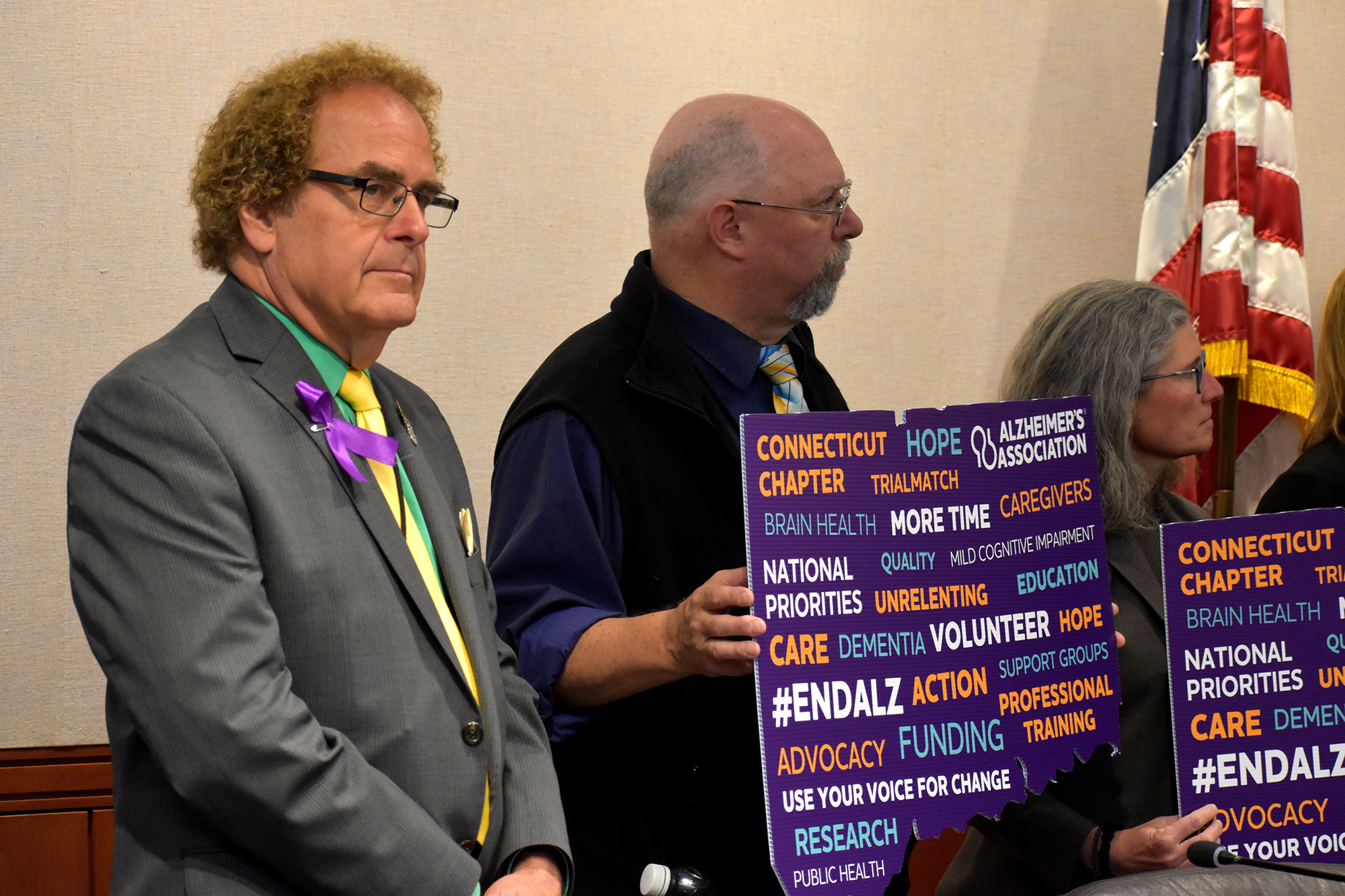

HARTFORD- In a room packed with Alzheimer’s advocates, family members and state officials, State Rep. Tom Delnicki (R-14) attended the Alzheimer’s day of advocacy at the State Capitol today encouraging Connecticut state lawmakers to support legislation that would assist people with dementia and their families.
“These families deserve our legislative support as they manage this terrible disease and care for their loved ones. Alzheimer’s can take a toll on caregivers and anything we can do to lessen that burden will help,” said Rep. Delnicki, who is a co-sponsor of both pieces of dementia care legislation.
One of the pieces of legislation Alzheimer’s advocates are championing, SB 931 An Act Expanding Access to The Alzheimer’s Disease Respite Care Program.
According to the proposal, starting July 1, 2023, this bill expands eligibility for individuals with Alzheimer’s disease or related disorders to participate in the state’s Respite Care Program. It does so by increasing the program’s (1) annual income limit from $51,114 to $70,000 and (2) annual liquid asset limit from $135,892 to $179,000.
Under existing law, unchanged by the bill, participants cannot enroll in the Connecticut Home Care Program for Elders.
The other piece of legislation, Senate bill 1025, An Act Implementing the Recommendations of the Homemaker-Companion Agency Task Force has a provision which would establish a Statewide Dementia Coordinator.
A State Dementia Services Coordinator is an individual within the state government whose job is to ensure coordination of Alzheimer’s programs and policies across state agencies.
A State Dementia Services Coordinator would:
- Oversee the implementation and updating of the State Alzheimer’s Disease Plan
- Coordinate Alzheimer’s and dementia work groups and task forces
- Establish and maintain relationships with all relevant state agencies and community organizations to meet community needs and prevent duplication of services
- Evaluate existing Alzheimer’s and dementia programs and services
- Identify service gaps within the state government
- Increase awareness of and facilitate access to quality, coordinated care for people with dementia.
Currently there are 80,000 people in Connecticut living with Alzheimer ’s disease or other dementia. The Alzheimer’s Association estimates that this number will rise to 91,000 people by 2025.
Connecticut’s population is the 6th oldest state in the nation and age remains the biggest risk factor to developing Alzheimer’s disease or other dementia.
